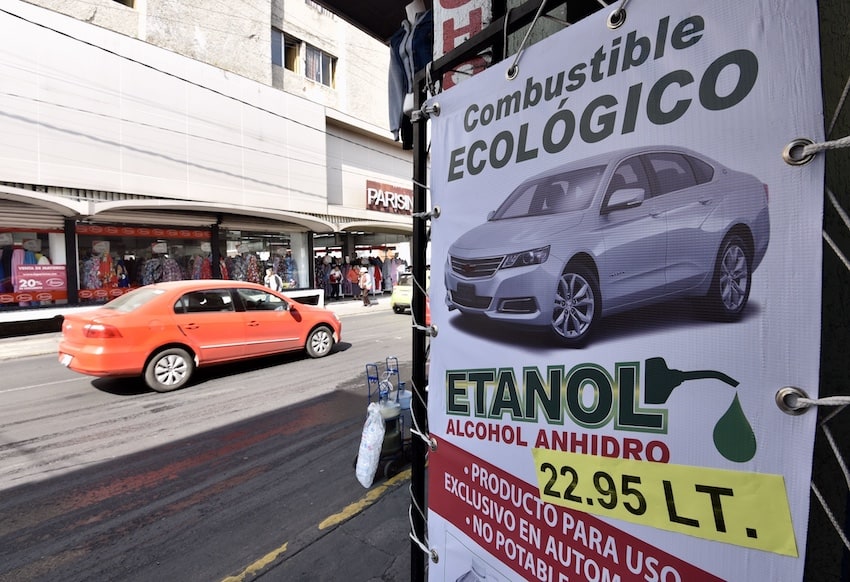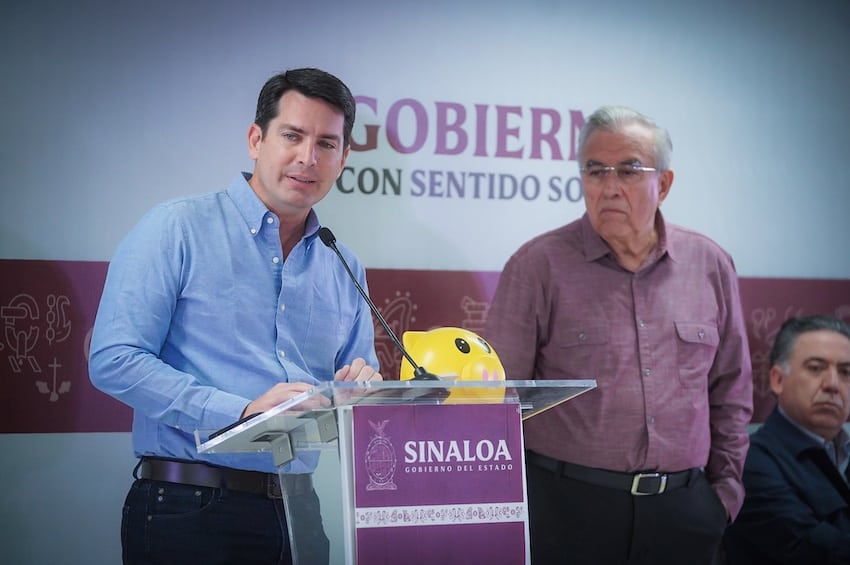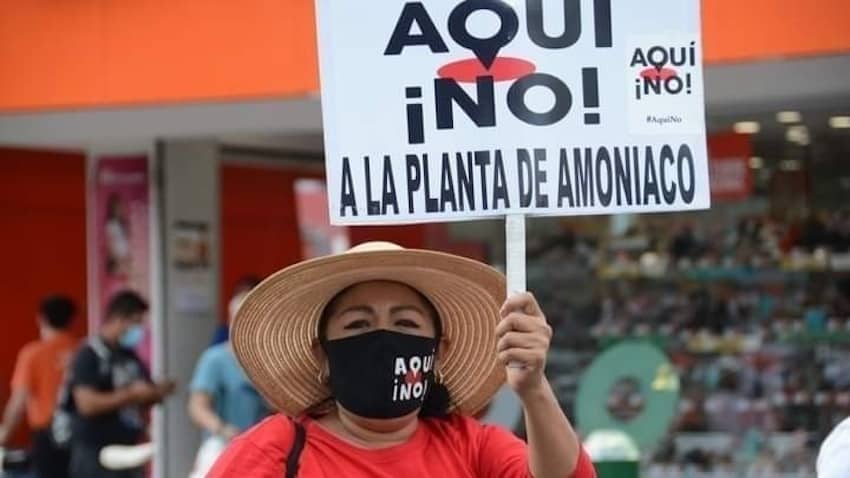Sustainable fuel megaplant to be built in Sinaloa

The world’s largest “ultra-low carbon chemicals facility” is slated to be built on Mexico’s Pacific coast in Sinaloa.
The International Finance Corporation (IFC), a member of the World Bank Group, and Houston-based company Transition Industries signed an agreement at last week’s United Nations Climate Change Conference in Dubai to jointly develop the Pacífico Mexinol project, a green and blue methanol production facility that will have the capacity to produce 6,145 tonnes of the organic chemical per day.
The plant, expected to begin construction in late 2024, will be located near Topolobampo, a town on the Gulf of California coast about 20 kilometers southwest of Los Mochis, the municipal seat of Ahome.
According to Spanish energy company Iberdrola, green methanol is “methanol that is produced renewably and without polluting emissions, one of its variants being generated from green hydrogen.”
“This chemical compound can be used as a low-carbon liquid fuel and is a promising alternative to fossil fuels in areas where decarbonization is a major challenge, such as maritime transport,” the company says on its website.
Blue methanol is “obtained by synthesis derived from natural gas, but includes as part of the process the capture and storage of the carbon generated during its production, converting it into a less polluting product [than grey methanol],” Iberdrola says.

United States Ambassador to Mexico Ken Salazar said in a statement on Saturday that over US $2.2 billion will be invested in the Sinaloa green and blue methanol project.
The IFC said that the plant “is expected to be the largest single ultra-low carbon chemicals facility in the world, producing approximately 300,000 MT [metric tons] of green methanol from captured carbon and green hydrogen and 1.8 million MT of blue methanol per year from natural gas with carbon capture.”
The global development institution said in a statement that “Pacifico Mexinol is expected to reach final investment decision in 2024 and commercial operations in late 2027.”
“The project is expected to generate an average of more than 3,000 jobs during construction and up to 450 direct and indirect workers during operations,” the IFC added.

The agreement with Transition Industries – known as a Joint Partnership Development Agreement – allows IFC to “contribute to the development of a project with the potential to reduce natural gas flaring, treat recycled wastewater, diversify Mexico’s chemicals capacity, increase exports and generate employment,” said Alfonso García Mora, IFC’s vice president for Europe, Latin America and the Caribbean.
“At least 40% of the global production of methanol comes from coal. Decarbonizing methanol production is an imperative for IFC,” he said.
Salazar, who has been a staunch advocate for renewable energy investment in Mexico since becoming ambassador in late 2021, said that the methanol project “will allow us to make progress in our shared goal of consolidating North America as a leading power in clean energy.”
“… This project will help to reduce the flaring of natural gas, promote wastewater treatment, diversify Mexico’s chemicals capacity, increase exports and contribute to the creation of jobs,” the ambassador said, echoing the words of García.
“Given that 40% of the global production of methanol comes from coal, this plant will serve as an example of what we can achieve when our governments work together with the private sector and international organizations to combat climate change, advance in the energy transition in North America and generate opportunities and well-being for our people,” Salazar said.
The IFC said that “Pacifíco Mexinol’s responsibility to sustainable resource management and its neighbors extends far beyond the ultra-low carbon production of methanol.”
The project – previously announced as a 9.3 billion peso initiative backed by two Dutch companies that no longer appear to be involved – “has been engaging with local stakeholders for over four years, listening to local community members to understand their needs and concerns,” the IFC said.
“As a result, the project’s design includes an innovative water solution that will use municipal wastewater eliminating competition with local freshwater needs. There is also no water being removed from or discharged into the nearby bay – an important local ecosystem. The facility will export methanol through an existing port, requiring no dredging or additional infrastructure,” the Washington D.C.-based institute said.

Sinaloa Economy Minister Javier Gaxiola Coppel acknowledged Monday that local indigenous communities must be consulted before the project can be approved.
“All these large-scale investments require a lot of steps [to obtain] the different permits to be able to carry them out, but in this we have a governor who is helping a lot,” said Gaxiola, who noted that the proposed construction site is in Paredones, a locality just outside Topolobampo.
The local environmental collective ¡AquíNo! (Not Here!) has already expressed its opposition to the project.
“The indigenous communities of the Ohuira Bay are totally convinced that [a] petrochemical [project] is not the development we want for our communities,” said collective member Claudia Quintero.

“The development of Sinaloa has to move ahead, but not at the cost of our lives, not at the cost of our land and not at the cost of the health of our children. … They’re taking it for granted that there is going to be a methanol plant when they haven’t approached us and haven’t asked us whether we’re going to give our consent for the installation of the plant,” she said.
¡AquíNo! also opposes the construction of a fertilizer plant in Topolobampo, which was supported by three-quarters of the participants in a referendum held in 2021.
In April 2022, the Supreme Court revoked the environmental authorization granted to the US $5 billion project because the federal Environment Ministry failed to consult the local indigenous community about it.
The future of that project remains uncertain, although the company behind it, Gas y Petroquímica de Occidente – a subsidiary of Swiss-German construction group Proman AG – reportedly remains committed to the construction of the plant.
The announcement of the green methanol “Joint Partnership Development Agreement” between IFC and Transition Industries came just a couple of weeks after President López Obrador said that a Danish fund – Copenhagen Infrastructure Partners – would invest US $10 billion in a green hydrogen plant on the Pacific side of the Isthmus of Tehuantepec.
Mexico News Daily
Source: Mexico News Daily

